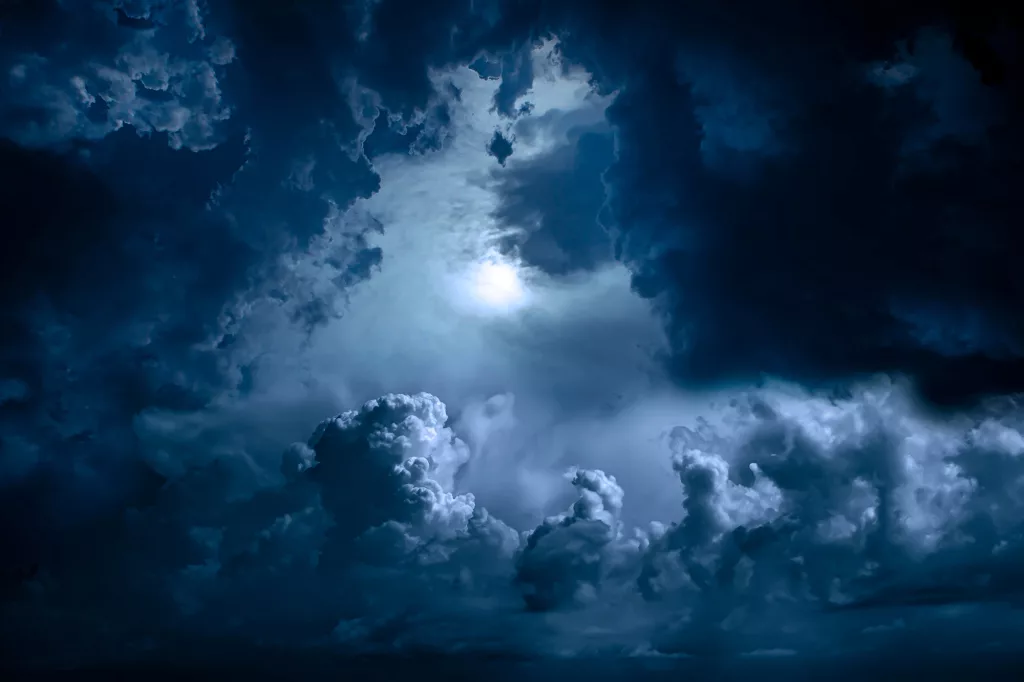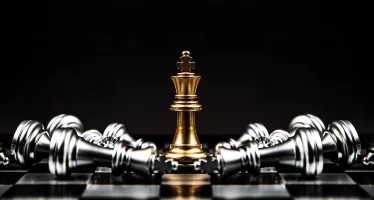Magic Happens — at Least in Your Head — but Should it Hold Sway in the Modern Day?
Despite the modern triumph of rational thought and the emergence of technological marvels, superstition, magic, and the search for spiritual meaning persist.
Some still think it prudent to salute a single magpie to ward off bad luck, toss spilled salt over a shoulder, or wear a lucky charm to a job interview. Modern life is crammed with such behaviour — not walking under ladders, or calling Shakespeare’s Macbeth by its name when in a theatre (it must be referred to as “the Scottish play”). Many of us appear to still be in the thrall of the other-worldly forces that led peasants or yore to suspect their neighbour of being a witch because the milk had turned.

Sports stars often go through obsessive rituals before a match or game, believing that deviating from a set pattern would bring ill-luck. The football world is particularly vulnerable: English league club owners have, over the years, brought in priests, bishops, druids, exorcists, and even witch-doctors in a bid to improve the scoring rate. The same is true for the political world. Former US president Ronald Reagan and his wife Nancy famously employed an astrologer to help guide American policy. Even Donald Trump is said to have engaged a spiritual advisor (though many suspect it was a ploy to attract fundamentalist voters).
Since the time of ancient Babylon, movements in the night sky have provided prophecies to plan harvests, wars, or warn of pestilence. Today, many people check their daily horoscope for the fun of it — while others see even this as dangerous dabbling in the occult. A recent survey found that 73 percent of Britons believed in astrology. The findings so alarmed the scientific community that a justification was suggested: perhaps those canvassed were confusing astrology with astronomy?
Many of our mystical leanings were driven by the search for meaning in a baffling world. The ancients — quite logically for the era — assumed the stars above were placed on a giant dome by unseen deities. We now know that the patterns in the firmament are driven by gravitational forces, rather than gods. And yet astrology is the biggest pseudoscience of them all, and still holds sway.
“We are perfectly justified in rejecting astrology as irrational,” said the late British philosopher Edward W James. “It simply fails to meet the multifarious demands of legitimate reasoning.” Haley Nahman, a New York-based writer on popular culture, adds: “The mainstreaming of astrology seems, if not an ill portent, at least representative of a broader intellectual apathy. Some might generously call it a deeper spiritual yearning, but I could also, less generously, call it a pseudo-existential branding exercise.”
US author and academic Eugene Subbotsky describes the persistent belief in magic as a fundamental property of the human mind. “Individuals can consciously consider themselves to be rational people and deny that they believe in magic, or God, despite harbouring a subconscious belief in the supernatural.” Subbotsky says these beliefs goes back 30,000 years to when our ancestors first began to populate nature with “spiritual agents” from whom to beg favours — good weather, or luck in hunting. He argues that belief in the supernatural can, and often does, co-exist with rational thought. Fortune tellers, tarot card readers and astrologists are still making a living; even today, magic is part of everyday life.
‘If a black cat crosses your path, it signifies that the animal is going somewhere’
— Groucho Marx
Those who study the subject suggest that the key lies in the mind, the human brain, which instinctively searches for patterns — even where none exist. And we strive for certainty, predictability, and order in times of doubt and fear.
According to the US market-research group Allied, the global astrology industry was worth $12.8bn in 2021. There was a surge in its popularity — partly because of ease-of-access, thanks to the internet, and partly due to the isolating effects of the pandemic. Philadelphia-based astrologer and life coach Tracey L Rogers says people are “reaching out and wanting some guidance”. In a 2023 interview with The Washington Post, the Cambridge University professor of history and science, Lauren Kassell, said people were using astrology as a tool to make sense of their lives.
“Good for them,” she concluded, “so long as they aren’t being exploited in the process. Some of the explanations for why astrology is on the rise now are deeply tied to scepticism about science and individualistic thinking.”
Millennials and Gen Z are said to be seeking comfort in connection with others. Forecasting agency WGSN estimates that more than 60 percent of them believe that their zodiac sign accurately represents their personality, and many turn to the stars for major decisions — from finding life partners to making career choices. The link between turbulent times and mystic belief hit the high-tide mark in the late 1960s, when the Hippy generation celebrated the dawning of the Age of Aquarius — despite astrologers being unable to agree on when it would actually begin.
There was a similar swelling of interest in the fey in the 1930s, coinciding with the Great Depression, post-World War I anxiety, and the rise of communism and fascism. The heinous policies of the Nazi party in the 1920s and 30s were heavily influenced by an esoteric doctrine which prophesied the coming of a new Aryan civilisation. Adolf Hitler and his henchman Heinrich Himmler, the “architect of the Holocaust”, were obsessed with the occult.
It wasn’t an isolated fixation; in that time of economic uncertainty and social upheaval, millions of Europeans began searching for a new “science of the soul”. Eric Kurlander, an American history professor and author of Hitler’s Monsters: A Supernatural History of the Third Reich, believes that the Reich would have been “highly improbable without a widespread penchant” for supernatural thinking. “Today,” he writes, “a renaissance in border scientific, faith-based, conspiracy-driven reasoning has begun to correlate with illiberal political and ideological convictions, influencing national elections, domestic social policies, and matters of war and peace. This phenomenon is evident globally.
“Every culture has its own supernatural imaginary that can, in times of crisis, begin to displace more empirically grounded, nuanced arguments about the challenges that define reality.” Kurlander believes that it is only by acknowledging the historical consequences of supernatural thinking that its influence can be countered.
For those tempted to delve into mystical realms in a search for meaning or happiness, let’s turn back to Groucho Marx, this time in full philosophical mode: “I, not events, have the power to make me happy or unhappy today. I can choose which it shall be. Yesterday is dead, tomorrow hasn’t arrived yet. I have just one day, today, and I’m going to be happy in it.”
By Tony Lennox
You may have an interest in also reading…
Rugby Injuries Tackled Head-on as Fans, Clubs and Ruling Bodies Put Renewed Focus on Player Safety
Tony Lennox reports on the ruck forming around rule changes to the rough-but-popular game of the oval ball. Hollywood legend
Preference Pass: Sunny Travel Savings Franchise
Avid world travelers may have experienced the hopelessness of arriving in a foreign land with little information and knowledge. At
From Solo Star to Team Captain: An Accidental Manager’s Journey
Suddenly shunted into the C-suite, or find yourself the foreman of your former colleagues? Don’t panic… They were the top
















































































